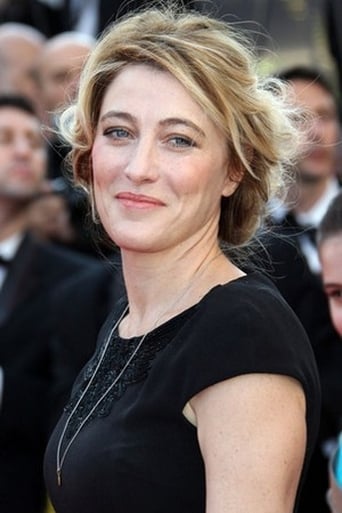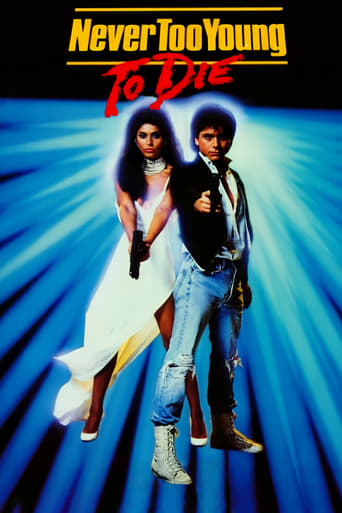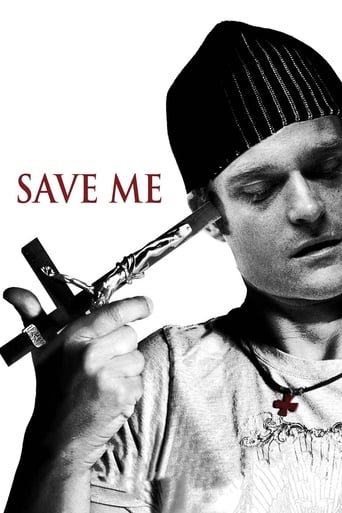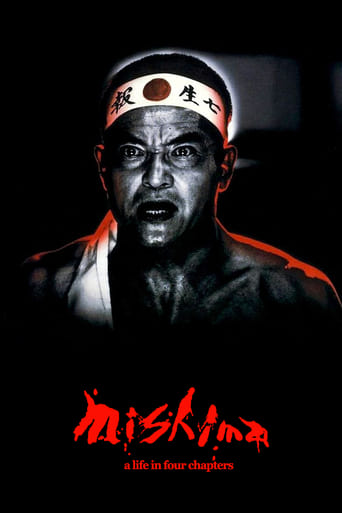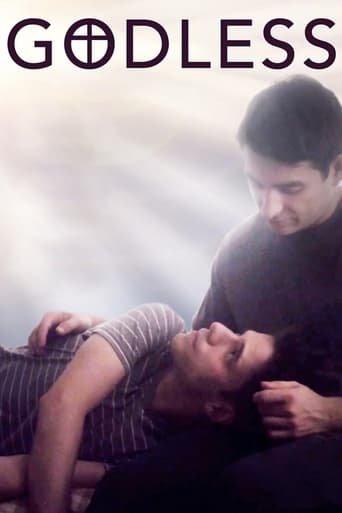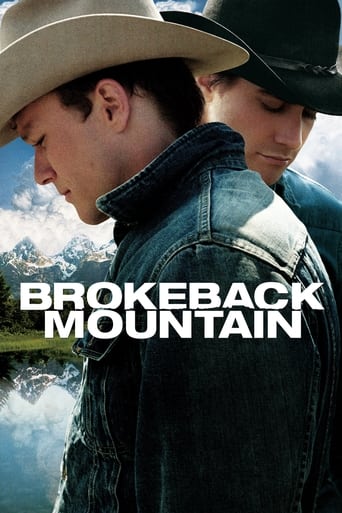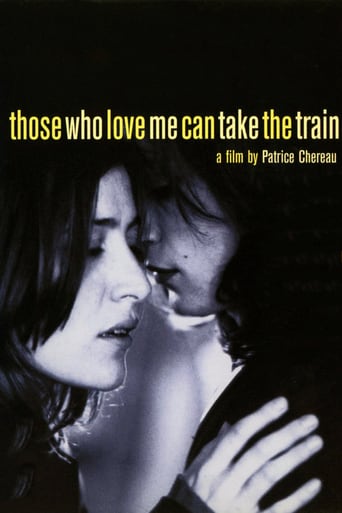
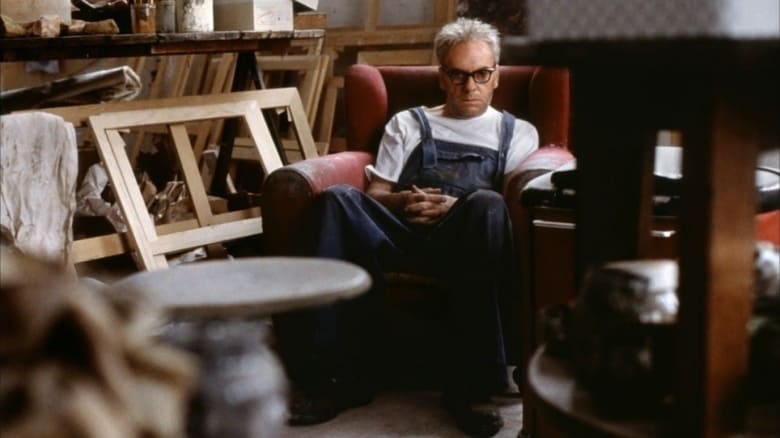
Those Who Love Me Can Take the Train (1998)
Friends of a recently painter Jean-Baptiste Emmerich gather at a Paris railroad station for a four-hour journey to Limoges, where Emmerich wanted to be buried. The dozen travelers include art historian François and his lover Louis, who develops an interest in Bruno, whom he meets on a train. Traveling parallel with the train is a station wagon with Jean-Baptiste's body, and this vehicle is driven by Thierry, husband of Catherine, who's on the train with their daughter. François plays a taped interview with Jean-Baptiste, revealing his sexual appeal to both men and women. Lucie is convinced that she was his main love. Also on board is his nephew, Jean-Marie and Jean-Marie's estranged wife Claire. After the funeral in "Europe's largest cemetery," the story continues in the mansion of Jean-Baptiste's brother Lucien.
Watch Trailer
Cast
Similar titles
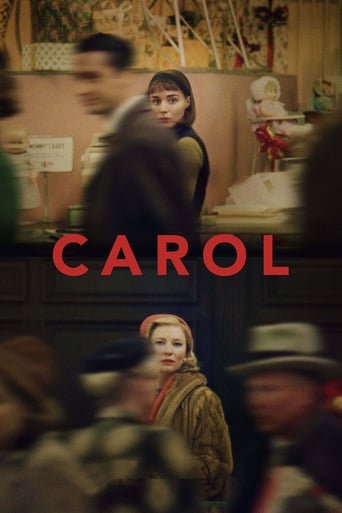
Reviews
I don't have all the words right now but this film is a work of art.
It's entirely possible that sending the audience out feeling lousy was intentional
Let me be very fair here, this is not the best movie in my opinion. But, this movie is fun, it has purpose and is very enjoyable to watch.
Worth seeing just to witness how winsome it is.
A minor but charismatic painter dies, and his friends and lovers and family go by train to Limoges for his funeral. There is a lot of bitterness and regret and desire: sometimes sudden and apparently irresistible, and it's given a very warm and lovely treatment here. The beauty of the men and their desire for each other is attractive (one does not have to be gay, though it helps to be sympathetic). However, the whole complicated story seems to me to be soaked through with the glum assumption that everything, everything is expendable, and the only good to be achieved is in brief moments of passion, and passion inevitably fades. There is no point in holding on to anyone. Is this apotheosis of fickleness strictly a gay theme? Certainly not, but it is central here. Apparently critics have talked of something being reborn in the story, but I could see only sadness. Happy endings may often be contrived, but sometimes I suspect the ineluctable dissolution ending can be just as contrived. Perhaps I just don't get it, but all this short-term loving, this coming close only to be set drifting outward into darkness seems unnecessarily painful, and I resent being told that's the way it is.
They all loved him. Jean Louis Trintignat is the focus of their love. He is dead. Love is not. The shape, light and nature of one's love for another changes from character to character. I was riveted by that puzzle that love usually implies. And Vincent Perez? Where is he? I kept waiting for him to appear in all its unbearable beauty. The film was almost over and no sign of Perez. But, I was rapidly falling in love with a young woman I had never seen before on the screen. She is not just a superb actress but a monumental beauty. Hold on a minute. I think I've seen her before. God almighty! It's Vincent Perez! Among the many delightful, thoughtful surprises of this, unusual, french import is Vincent Perez as a girl. If you let the film happen and you don't fight it. You are going to have a wonderful experience.
Wow, what was this about? I rented this film with no knowledge of plot, characters, actors, directors, anything. All I knew was it was filmed in France, with English subtitles, was contemporary and had a gay plot or subplot. As I write this it occurs to me that I must have liked it. I love to critique film, yet unless I am moved, emotionally or psychologically, I rarely want to write down why, or how, a film has affected me. This film affected me. ...........................SPOILERS AHEAD........................ Let's start with the basic plot line. A rather minor painter in Paris has passed away and has asked to be buried in his old home town of Limoges in the south of France. 14 of his old friends, relatives, lovers and hanger-ons board a train in Paris early in the morning for a few hours ride to the funeral. The painters body is not on the train but is being driven down in a Pugoet station wagon. They all meet up at the cemetery where a man reads a poem in English and one of the lead male characters translates into French. Men and women standing around the grave cry openly. The majority of the mourners end up at a huge French chateaux for a wake. There, over the next 12 hours or so, everyone engages in a nonstop bitch about sex, money, relationships, marriage, children, love and inheritance, not in that order, but all subjects are covered by everyone by the next morning. Now.....What was this film about? It took viewing through the first hour of this 2 hour film for me to realize that many of the men were gay or bi-sexual and had been lovers of the now dead minor painter. Now I know that Europeans, and particularly the French have always been more accepting of same gender love, but what took me so long to get a handle on what was happening in this film was the way that homosexuality was being portrayed. It was taken as almost natural that most of these guys had been a part of the painters life at one time. Not only natural, but simply "the way it was". There was no censoring "gay" as evil or a perversion. That really did not exist. They had all loved the dead man and they were all grieving for him in some manner. What about the women in this film? Other than some older female relatives and two younger women, most of the characters were men. Is it intimated that these women had been lovers of the painter? This is not clear, however, more unusual is the fact that these women have been either lovers or wives of some of the guys who are mourning for their dead lover, the painter One of the male characters, the one who drove the body down from Paris, is married and his wife and child are on the train to Limoges with everyone else. They go to the funeral and the wake. When her husband is driving the body down to Limoges the guy picks up a hitchhiker and uses him as a sounding board to verbalize his grief over the dead painter. He says something like, " I carried him around, washed his body, worshiped him" Does his wife know of his relationship with the dead guy? Did she approve? What is that all about? There is another character who falls in love with a very cute dark haired guy he meets in the railway station as everyone is boarding the train in Paris. They catch an erotic "squeeze" in the trains toilet. Suddenly you are introduced to a woman who is the older guy's wife? Lover? Old girlfriend? She is very upset. Is she upset over his relationship with the young boy, or is she angry about something else? Yet another male character is gay and he drops his hold on the older guy who loves the young boy. I assume because he wants them to happy together, but without him. To top all this off there are old aunts and, I think, fathers and other people who have something to do with the dead painter, but whose role in all this drama isn't clear. Finally there is the transsexual Viviene. She used to be Frederic, and sill has Fred's equipment, but with boobs as well. Did Frederic have a relationship with the dead painter to? I don't know. Viviene's role in this film is also unclear, yet she seems deliciously happy that no one at the funeral and wake has figured out that she used to Fred. So you see this film is extraordinarily complex. I said it affected me and I was not quibbling about that. I will watch this film again (not tonight!). It stupified me. The negative about this film, from an American point of view, is, of course, the beautiful French language that I don't understand. I know the intricacy and double meaning that the French can put into dialog, and I'm sure the translation into English subtitles butchered some, if not a lot, of the meaning of the interplay between characters. Also, the subtitles themselves were small and in white, not yellow, as they should have been making it very difficult to read and understand. Other reviews have mentioned the darkness of the film. I found that not distracting at all. Many of the sequences in the chateaux are dark to fit the sometimes bizarre and somber storyline. Others were emotionally head on perfect. The crowded, speeding train with claustrophobic atmosphere, carrying all the former lovers and friends, hurtling south across the French country side so they may have a last goodbye. The cemetery, huge, with 180,000 dead souls in the bright sunlight. All filled up to the brim with symbolism and portent. This film is a strange one. Wonderful acting, really top notch all around. The camera work is unique and very stylish. The camera floats along at times, sometimes delivering very long, hypnotic track shots. Sometimes the camera is in a helicopter or plane and the sweeping shots of the city of Limoges and the cemetery are very arresting. Most of the scenes in the rest of the film were shot with a hand held camera and cameras. This gave the film an aura of gritty realism and was not the least distracting. I'd have to say the film is strangely Robert "Altmanish" in texture and characterization. In fact, this film would have been more powerful with a deeper insight into all the characters involvement with the dead painter. Altman would have shot enough for another hour, or longer. It would have been just a little easier to understand all the intense emotions and motivations. But, This was not an Altman film. It was a very unique and off beat art film that I will watch again to see what I missed. Don't buy it, rent it, it makes you think. Isn't that what good drama on film is supposed to do? I liked it and recommend it to anyone who loves different and interesting cinema.
Having previously seen "La reine Margot", I suspected something as good as that from a film by the same director and with some of the same actors. But what I did get was one of the worst films I ever saw. The same-gender attracted men in the movie fell into nearly every stereotype possible (most notoriously the effeminate behaviour, that one boy even looked like a girl!), and to see the main actor from "la reine margot" in woman's clothes was simply disgusting for me (also because I don't like transvesite movies and the connection the movie made beetween transexual/effeminate behaviour and same-gender attraction anyway). The story was some ultra-tearful boring melodrama, but not because something that bad happened, but simply because the effeminate men had to make such a tearful fuss. How pathetic. The music was also bad. This movie is an insult to every sane viewer, in my opinion.

